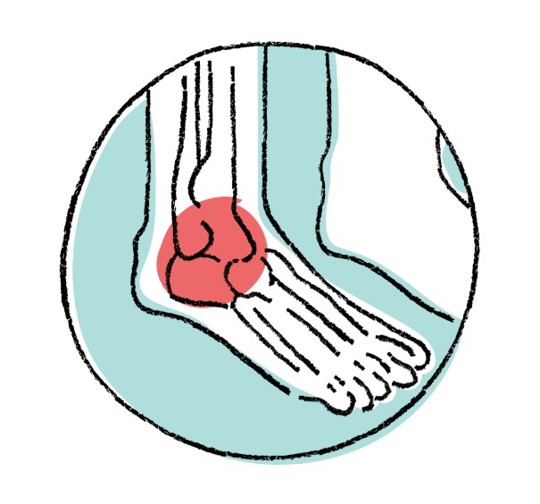Inflammatory arthritis
On this page
Guidance on managing flare-ups, accessing support and understanding treatment options.
Information for rheumatology patients in the NHS Highland area with inflammatory arthritis, such as:
- rheumatoid arthritis
- psoriatic arthritis
- juvenile idiopathic arthritis
- axial spondyloarthritis (ankylosing spondylitis)
There's information about what to do when you experience a flare-up (that is, an episode when your arthritis symptoms get worse). It highlights how to get in touch with the Rheumatology Advice Line and when this is appropriate. You can also find information about the waiting times for review appointments and biologics, and links to useful resources.
Read this patient information as a PDF document instead (October 2025).

How to manage a flare-up at home
A flare-up is a period of increased disease activity or worsening arthritis symptoms such as pain, swelling, stiffness and fatigue. Even if your disease is well controlled by medication, your joints may flare up occasionally. This might be triggered by an infection, stress or poor sleep but can also sometimes happen without an identifiable cause. There are things you can do at home to reduce your symptoms and hopefully shorten the flare-up:
When to contact the service about a flare-up
Unfortunately, flare-ups are rarely completely unavoidable if you have inflammatory arthritis. An isolated, short-lived flare-up is unlikely to require changes in your long-term treatment. Taking regular painkillers according to instructions or getting a short course of steroids from your GP can help bring a flare-up to a halt.
However, if you are experiencing regular flare-ups (more than two in a year) and these flare-ups last for longer than a week despite self-management techniques, you should get in touch with the NHS Highland rheumatology Advice Line. It is particularly important to get in touch if your flare-up symptoms such as pain and stiffness keep getting worse instead of better. On these occasions you will need to be reviewed by a specialist who may recommend changes to your treatment.
It is important to seek help if you are experiencing recurrent and prolonged flare-ups or if you feel that your joints are steadily becoming more stiff, painful or swollen. Uncontrolled inflammation in the joints can lead to irreversible damage within the joint. This can eventually cause joint deformities and functional loss.

Fatigue management
Fatigue is a very common and often overwhelming symptom of inflammatory arthritis. It can affect both daily activities and emotional wellbeing, and we understand how challenging this can be. Because fatigue is usually caused by several different factors, there is rarely a simple solution. We suggest trying the following approaches to address your fatigue in the first instance:
Additional resources
Arthritis UK
Different people experience flare-ups differently so there is no one right way to manage them. Arthritis UK provides a free helpline you can contact to discuss flare-up management or other topics related to your arthritis.
- Read more about Arthritis UK, their helpline and how to contact the charity.
- Flare management tips from Arthritis UK.
National Rheumatoid Arthritis Society (NRAS)
National Axial Spondyloarthritis Society (NASS)
If you have an inflammatory back disease such as axial spondyloarthritis, NASS runs a weekly self-help group at the Ross Memorial Hospital in Dingwall:
- 7pm on Wednesdays (NASS membership required)
- read more about the group
NHS Grampian
- Flare management advice (pdf)

Rheumatology
-
Rheumatology
The rheumatology advice line, and patient information about inflammatory arthritis.
-
Inflammatory arthritis
Guidance on managing flare-ups, accessing support and understanding treatment options.
-
Ross Memorial Hospital (Dingwall)
Ross Memorial Hospital is situated a short distance from Dingwall town centre.
